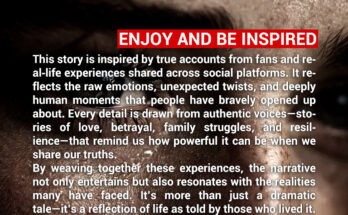I used to believe that respect came naturally with age. That once you’d raised a son with love and watched him build his own life, you’d earned a seat at the table—dignified, seen, and heard. But my daughter-in-law, Elizabeth, shattered that illusion with a single glance.
It started with her wedding. I’d found a beautiful yellow dress—soft, flowing, joyful. It made me feel radiant, like I was part of something celebratory. But when I showed it to Elizabeth, her smile vanished. “That’s not appropriate for your age or weight,” she said, voice clipped and condescending. “I’ll make you something better.”
A week later, she handed me a black, shapeless garment. It looked like a mourning shroud. “It’s more suitable,” she insisted. I stood there, holding the fabric, feeling my confidence unravel. I wasn’t just being dressed—I was being erased.
I wore the dress. For my son. For peace. But inside, I felt humiliated. I smiled through the ceremony, posed for photos, and swallowed the shame. Later, I overheard Elizabeth laughing with her friends about how she’d “rescued the aesthetic” of her wedding. I was the aesthetic casualty.
That night, I cried. Not because of the dress, but because of how easily I’d let someone strip away my dignity. I realized I’d been shrinking myself for years—avoiding confrontation, staying silent, trying to be the “good” mother-in-law.
But shame is a heavy cloak, and I was done wearing it.
So I made a decision. I invited Elizabeth and my son over for dinner. I wore the yellow dress. I stood tall. And I told her, calmly but firmly, how her words had wounded me. How I’d felt invisible. How I wouldn’t let that happen again.
She was stunned. Defensive at first. But then quiet. Maybe she hadn’t realized the impact. Maybe she had. Either way, I reclaimed something that night—not just my voice, but my right to take up space.
I still wear that yellow dress. Not just because it’s beautiful, but because it reminds me: I am not a footnote in someone else’s story. I am the author of my own.
